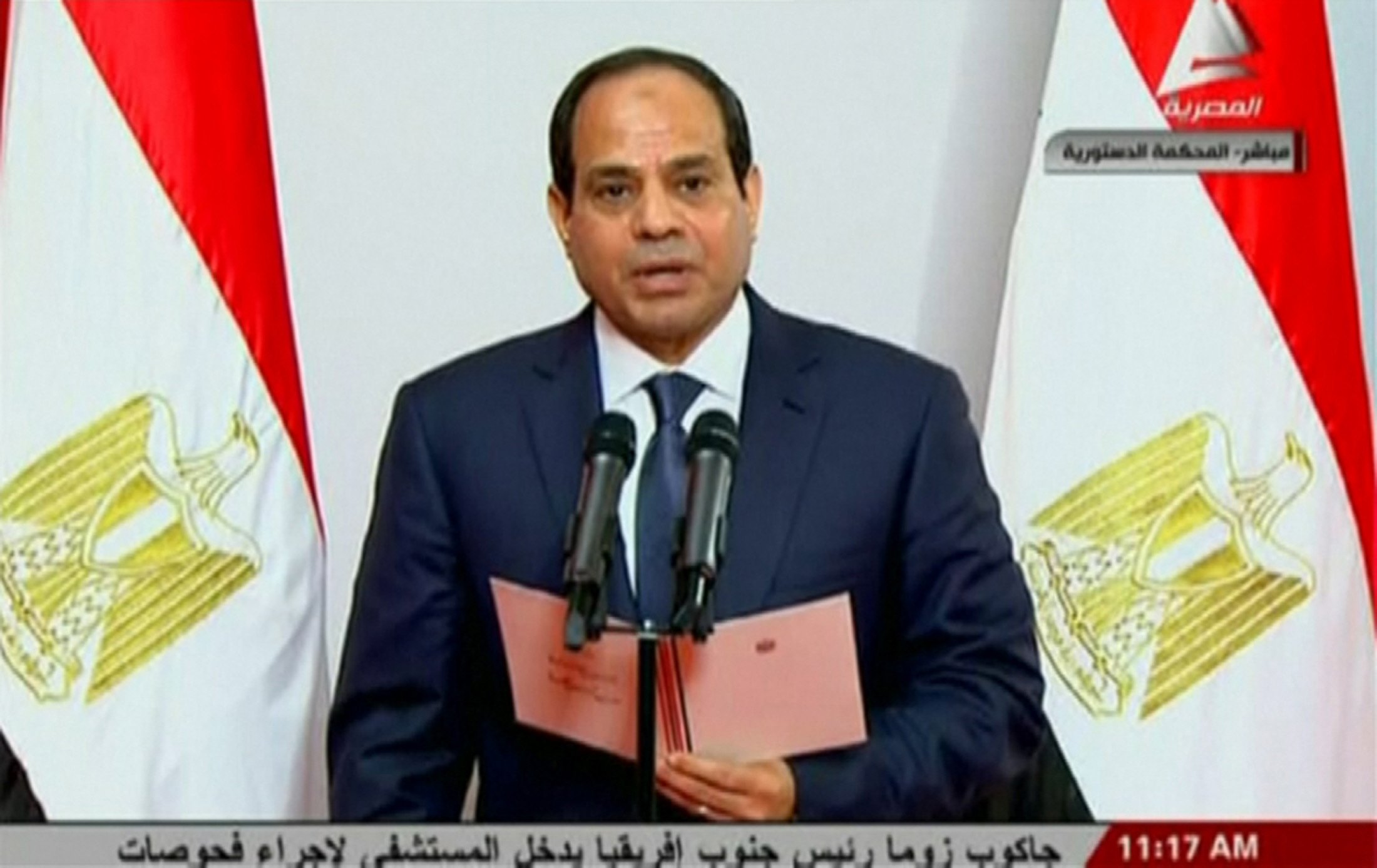
Last month's presidential election, which officials said Sisi won with 97 per cent of the vote, followed three years of upheaval since a popular uprising ended 30 years of rule by former air force commander Hosni Mubarak.
Before a panel of judges at the Supreme Constitutional Court, Sisi swore to protect Egypt's republican system, unity law and the interests of its people. Western countries, who hoped the overthrow of Mubarak in 2011 would usher in a new era of democracy, have watched Egypt's political transition stumble.
Mursi's year in power was tarnished by accusations that he usurped power, imposed the Brotherhood's views on Islam and mismanaged the economy, allegations he denied.
After Sisi deposed him and became Egypt's de facto ruler, security forces mounted one of the toughest crackdowns on the Brotherhood in its 86-year history.
Hundreds were killed in street protests and thousands of others jailed. Secular activists were eventually thrown in jail, even those who supported Mursi's fall, because they violated a new law that severely restricts protests.
COMMENTS (2)
Comments are moderated and generally will be posted if they are on-topic and not abusive.
For more information, please see our Comments FAQ



1732626034-0/BeFunky-collage-(92)1732626034-0-165x106.webp)


1732618327-2/Untitled-design-(7)1732618327-2-270x192.webp)










the day the music died (in egypt)
Sisi won with 97 percent of the vote. But, around 50% of the voters didn't vote in this election. So, it's doesn't mean 97 percent of Egyptians vote for Sisi.